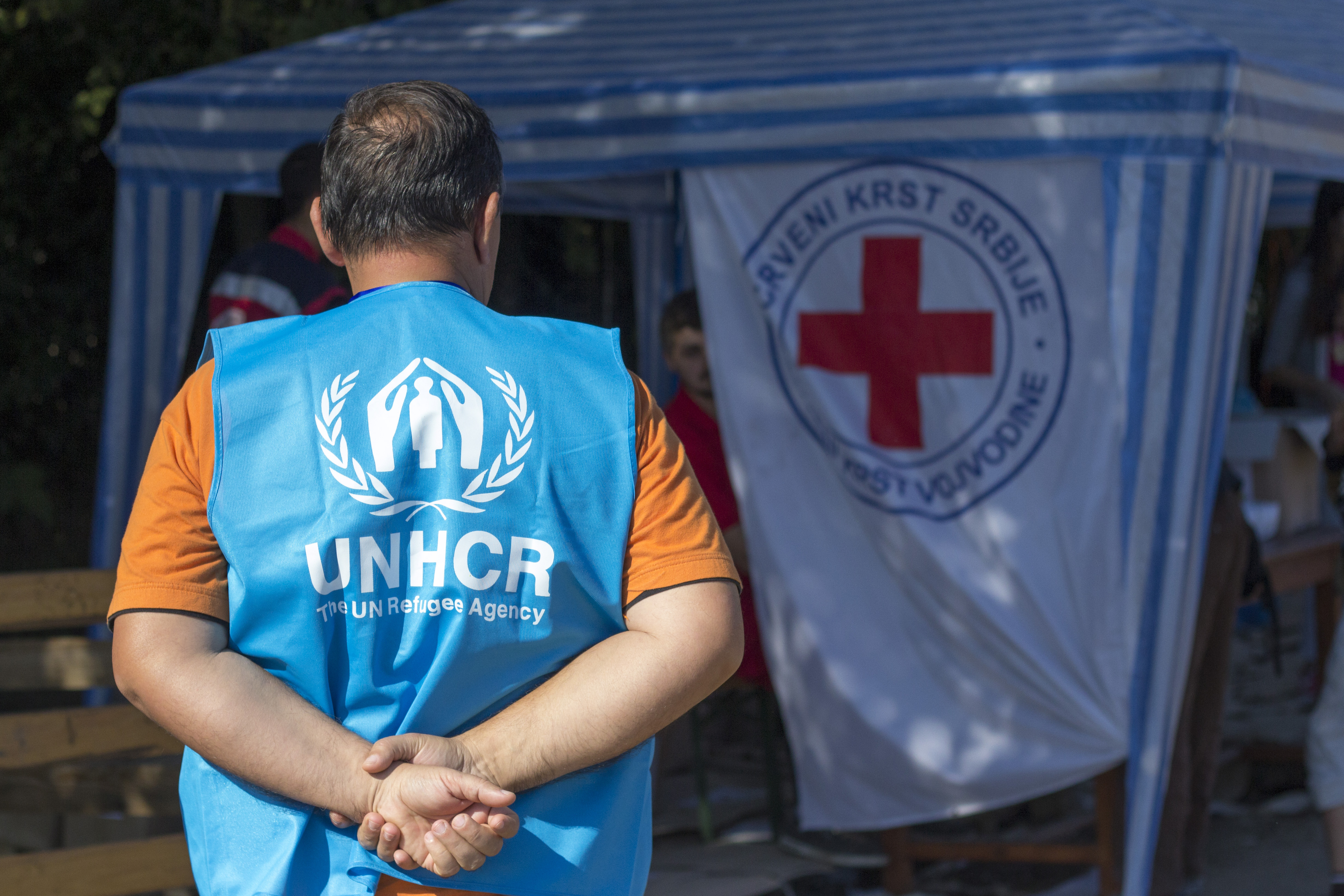Consider that the age of human rights since the 1970s is also the age of the victory of the rich on the world stage in many national settings. There had been an era of welfare states around the time of World War II that achieved unprecedented distributional or material equality for fellow citizens, compared to the Gilded Age before and our own period of often expanding inequality. In relation to this situation, even when movements and law stress economic and social rights, like entitlements to a basic amount of housing or health, they prioritise an entitlement to a sufficient minimum of the human decencies in life. You might call that a floor of protection, but, by the same token, that very priority means that there’s little focus on any ceiling on inequality. So unlike, for example, socialism, which human rights displaced and which made distributional or material equality central, human rights can coexist with expanding inequality.
What human rights missed: the larger agenda
Chancellor Kent Professor of Law and History, Yale University
- Human rights become sacrosanct entitlements but do not alleviate inequality.
- International human rights movements and law create stigma in the international system.
- We should reclaim human rights as part of local politics and in relation to a larger agenda.
Selective rights
Human rights became triumphant around the end of the Cold War. As a new language of idealism and politics, they are selective. Like all things human, they prioritise certain things over others. Namely, the whole idea of human rights is that there are sacrosanct entitlements: free speech, integrity of the body, maybe some notion of sufficient provision, like enough housing or health, that every human deserves. However, what we’ve seen is that certain other priorities can get lost when human rights achieve the prominence they have in our world.
Human rights coexist with inequality

Photo by ENDE studios
Basic protections in war
When the United Nations was founded in 1945, its purpose was to forestall war. Trials after World War II of national socialist leaders, like the Nuremberg trials, were all about principally indicting them for making war, not for war crimes or other human rights violations in the midst of wars once they start. Our age is very different. The priority that human rights is given focuses not on whether states get along in the international system or whether violence is deployed by powerful states, but instead on the basic protections that human beings should have, even in war. So, once again, the age of human rights seems to be one in which the priority given to basic protections, the right to life most obviously, takes our attention away or goes along with another problem.
Defence against majority politics
Since the end of the Cold War, the great powers, including the United States and the United Kingdom, have gone to war far more frequently than they did before the end of the Cold War. With the loss of pacifist movements, which were once quite prominent, human rights is not focusing on the outbreak of war, even though it can sometimes help humanise the wars that do break out. An excellent example of this syndrome is the global war on terror, which has allowed almost unlimited – unbounded in space and unlimited in time – aggression while sometimes featuring big campaigns to make the wars more humane. Finally, consider the last example, which is the fate of democracy. Human rights, for very good reason, when they become the priority, don’t play well, don’t fit naturally, with democratic self-determination. In fact, the image in many people’s minds when they think about human rights is that of the vulnerable and weak minorities who need protection from majority politics. Human rights advocacy, as well as law, has very frequently been juristocratic. Its goal is to transfer authority over basic decision making, not to legislatures, but to judges.
In this case, one can worry that looking at human rights could leave us unprepared to engage as fully in the rough and tumble of assembling a majority coalition for whatever broad set of values we cherish. Very few of those who’ve advocated human rights understand themselves to be seeking majority consent through embedding human rights in a package of attractive policies so that, for instance, majorities won’t vote for right-wing populists, and instead will protect the weak and vulnerable as part of the interests they pursue for their own sake. In all of these ways, we can worry that the age of human rights has not been an untrammelled good. It’s selective and comes at a cost to other values and solves one set of problems, or tries to, while incurring other problems along the way.
Distributing stigma

Photo by Gorodenkoff
Human rights have enjoyed some success in a few different ways, which I think needs to be acknowledged as a basis for thinking about how to supplement them. To begin with, what we’ve learned is that human rights, even those in international treaties, are best defended when ordinary people take ownership of their own politics. In the end, what we’ve learned is that international enforcement of human rights is maybe not the best place to pursue these basic values. Instead, the original form of human rights, where they were a language for defining citizenship, redefining them, broadening their claimants and changing their content, is the foundation of human rights, where we can look for hope and progress. All that international human rights movements and law have been able to do otherwise is to distribute stigma in the international system: to brand states as violators, sometimes in ways that lead them to change their behaviours, but very rarely – and sadly, sometimes in ways that allow great powers to engage in wars, like humanitarian intervention in the name of human rights.
A larger agenda
Even the success stories of human rights suggest that we should reclaim human rights as part of local politics and in relation to a larger agenda. To think about that larger agenda, we can return to some of the problems that the priority of human rights has missed in our period. We’ve seen that human rights go along with rising inequality. The point would not be to drop human rights, because free speech matters, and sufficient provision and basic decency in life, like housing and health, matters – but only as part of an egalitarian agenda. The goal would be to dream of a majority politics that would be attractive, not just to the very poor or very rich, which human rights sometimes have been because they’re compatible with rising inequality, and instead demand a form of egalitarian majority politics that honours human rights in the mix of a broader egalitarian agenda when it comes to war and war-making.
Human rights in a majority process

Photo by BalkansCat
We’ve learned since the 1990s that we’ve gone too far in allowing human rights either to humanise or justify war. Once again, the point is not to reject human rights, but to integrate them in a larger, somewhat more pacifistic kind of outlook that focuses on the outbreak and continuation of war, which is far more costly even for human rights. When we intervene so late in war to make it less cruel, we ironically miss a chance to keep even the cruelty from being unleashed. Finally, consider democracy. If it’s true that human rights have involved a search for beneficent judges by advocates to protect human rights no matter what the majority wants, and a majority responds by moving right — scapegoating the weak and vulnerable, notably immigrants — then it seems as if the only solution is to embed human rights in a majority process that can win democratic consent. To do so would require not so much focus on non-governmental organisations, but more on party politics and on parties as the entities that would fold human rights into the broadest kind of majoritarian agenda that people would want, and would therefore choose, when they elected leaders.
An easy kind of identification
Bertolt Brecht famously asserted that first comes food and then morality follows. His idea was that the real necessities of human life always take priority over moralising about the way the world ought to be. That’s an old idea that other Marxists, notably the founder of Marxism, Karl Marx, have championed. The problem with ethics is that they’re ethereal and detached from real politics. Therefore, we need to stop so much moralising and focus more on politics, including potentially rough and tumble or even violent politics. My own view is somewhat different; it’s true that human rights have been a kind of morality, a kind of convenient set of values for the comfortable when they look out at a world of hierarchy and are ashamed. That is very problematic. There has been a new form of humanitarian identification with suffering. It’s a very easy kind of identification, a form of noblesse oblige. It would be wrong to take a fully realistic approach to human rights and claim that we ought to drop all forms of moralising in favour of something else, because at the root of any practical commitment, anything you or I set out to get done in politics, is some kind of moral conception – and it really matters what the moral conception is.
Discover more about
Reclaiming human rights
DeGoover S., Hunt A., Maxwell L., et al. (2017). The Right to Have Rights. Verso Books.
Moyn, S. (2018). Not Enough: Human Rights in an Unequal World. Harvard University Press.